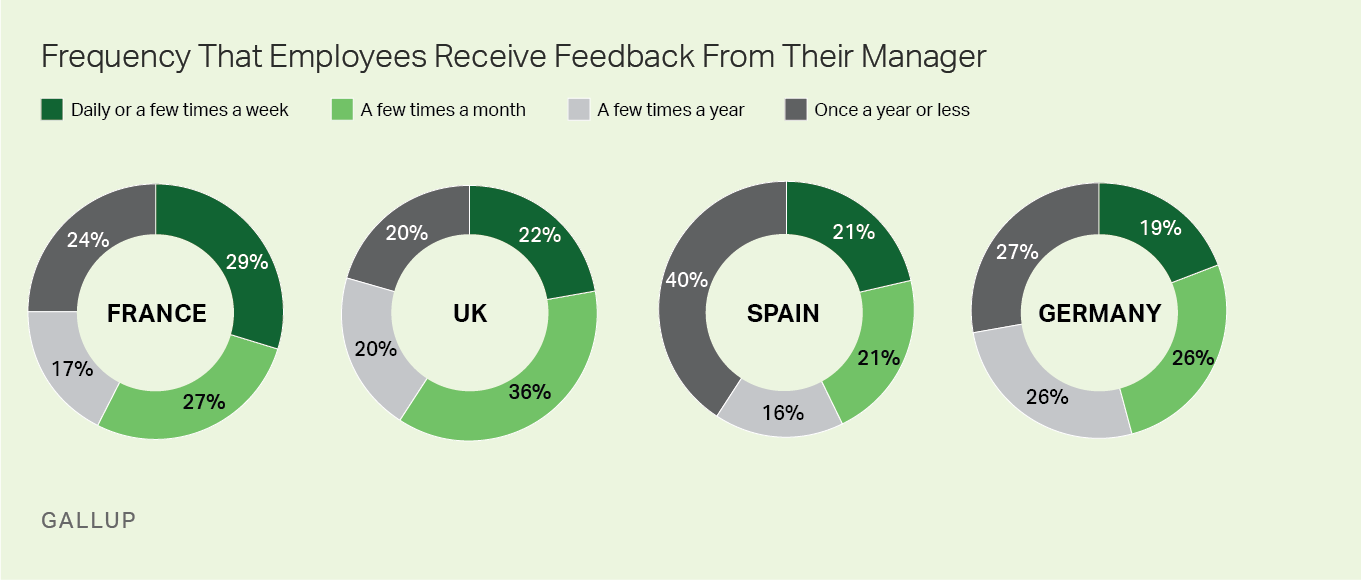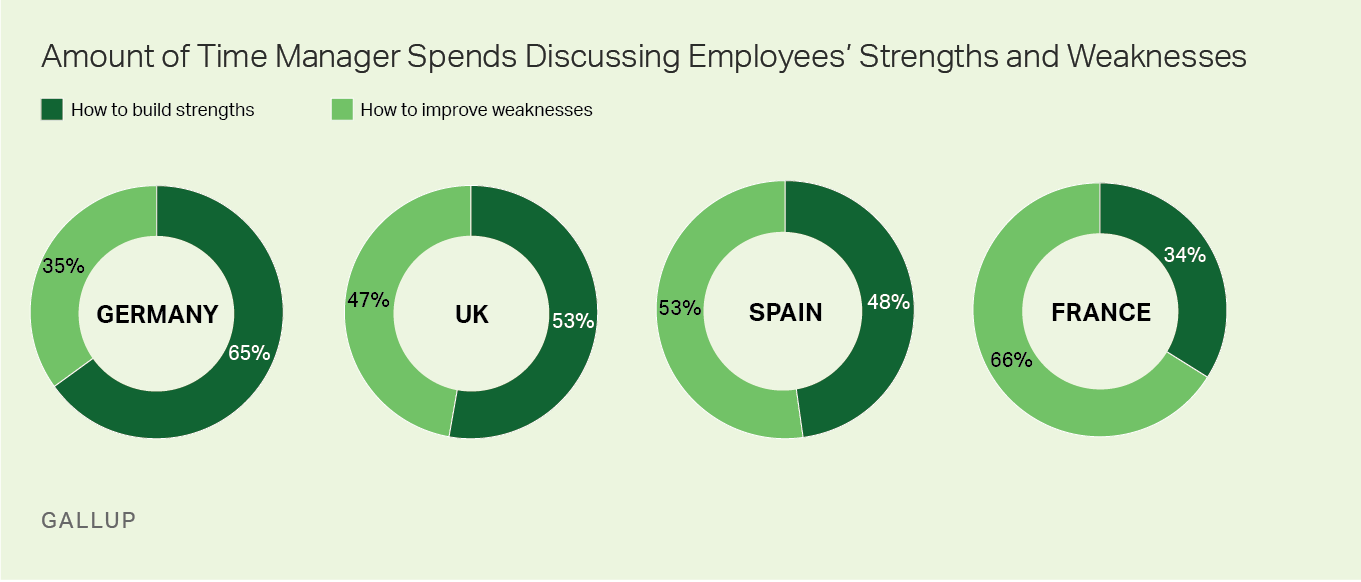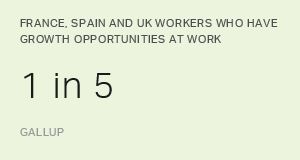Story Highlights
- Managers are now often responsible for matrixed teams
- Employees in four European countries rarely get feedback from managers
- The best managers coach their employees
The rise of independent workers in the gig economy is a reflection of broader changes in the nature of work.
Even workers who are formally employed are more likely to have greater autonomy than those in times past, many cultivating an idiosyncratic portfolio of projects and responsibilities rather than adhering to a standardized job description.
Organizational structures are adapting to reflect these changes, with traditional hierarchies giving way to team-based matrix models that allow for more flexibility in matching employee talents with business needs.
With these trends toward greater employee autonomy and matrixed work, people management skills have become more important than ever.
Managers find themselves responsible for teams that cut across projects, divisions and countries.
They rely on their ability to influence performance outcomes by helping ensure employees are in roles that fit their talents and aligning organizational goals with employees' personal sources of motivation such as peer recognition.
In this job of positioning employees for success, the role of manager has shifted from "boss" to "coach."
In this new role, great managers focus on both the quality and quantity of their interactions with team members.
Coaching relationships require more frequent, personalized interactions than is typically the case under more hierarchical forms of management.
When managers and employees engage in an ongoing dialogue about performance, they can remove barriers, seize opportunities and adjust expectations when circumstances change.
Many employees in the four countries surveyed say they receive feedback from their manager relatively infrequently -- particularly those in Spain and Germany, where most say it happens "a few times a year" or less often.

Of course, employees are unlikely to welcome a shift toward more frequent interactions if the quality of those interactions is poor.
Effective coaching requires managers to connect authentically with employees through effective people skills and an individualized understanding of each team member.
Gallup finds that when performance discussions are strengths-based and engagement-focused, managers move beyond the role of "task manager" and adopt a coaching perspective.
Only through an appreciation of who employees are as people and what they need to be engaged can a manager effectively coach them to be their best.
When it comes to whether their manager focuses more on their strengths than their weaknesses when discussing their performance, there is considerable variation among employees in the four countries surveyed.
Employees in Germany are the most likely to say their manager spends more time talking about their strengths, at 65%. Just one-third of employees in France (34%) say the same, while two-thirds (66%) say their manager spends more time on how to improve their weaknesses.

To maintain high levels of workplace engagement and productivity, employers in each country need to increase their focus on workers' strengths to help them do more of what they do well.
Ultimately, as automation continually leads organizations to reorient their workforces around enduring human skill sets like creativity and relationship-building, those traits will become more important among managers as well.
Organizations that can identify and retain individuals with the empathy, self-awareness and strategic vision to be good coaches will have a powerful advantage in helping employees navigate future changes with versatility and confidence.
This article is part of The Real Future of Work series. Learn more:
- Read the first, second and third articles in the series.
- Download The Real Future of Work: Performance Issue.
- Watch The Real Future of Work webinar.
- Attend our Leading High-Performance Teams course.

